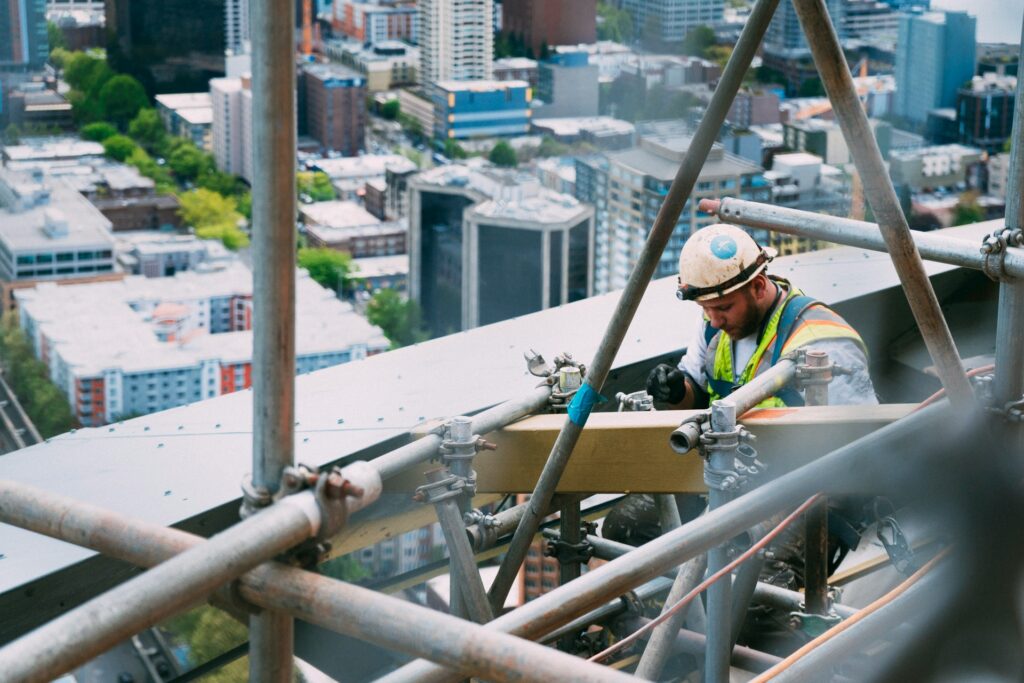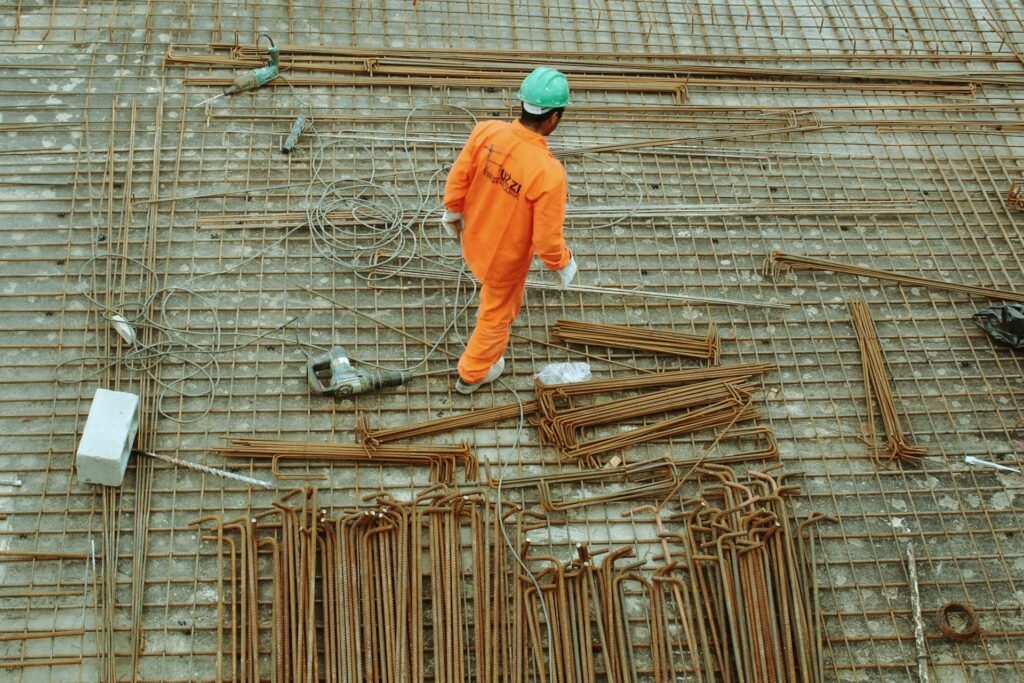Smash and Grab Adjudication — An Overview Guide

The term “Smash and Grab” is an informal way to describe a specific type of way to recovery unpaid applications in the construction industry. The opportunity arises if the payer has not served a payment certificate and/or a notice to pay less. A smash & grab can also work when a payment notice has been given but not paid.
The construction industry routinely involves high value complex projects that can last for months, if not years. Cashflow and stage payments or interim payments are the lifeblood of contractors.
Due to the high value and complexity of the works and projects involved, typically complex contract mechanisms are agreed, including in relation to timing and amount of payment, and quality of works.
Employers and developers want to remain in a strong position by holding back monies and payments at an interim stage often based on the fear works will not be accurately or properly completed on time, or at all. Contractors obviously need and want to be paid. If the employer or contractor does not issue a payment certificate and/or a notice to pay less the party waiting for payment can pursue a smash & grab adjudication.
“Smash and grab” is a particular type of Adjudication, which is a type of dispute resolution within the construction industry. You can read more about adjudication here but a Smash and Grab adjudication is a type of adjudication that is solely focused on recovering money that is owed for an unpaid application or unpaid payment certificate.. Adjudication can be used in a broader context to decide the true value of an account or application, but a smash & grab is only concerned with, enforcing payments and recovering monies as quickly as possible in the construction environment and is based purely on the payment notice rules rather than the underlying works.
The aim of a smash and grab adjudication is to get in and out of a dispute, with confirmation you are entitled to money/to be paid, as quickly as possible without having to deal with valuations and counterclaims for delay and contra charges. Pursuing monies owed via a smash and grab adjudication can be quicker and cheaper rather than a true value adjudication or issuing a money claim in court- which can take months if not years.
Smash and Grab adjudications are quick, preserving the movement of money without the need to become embroiled in expensive and protracted disputes in the courts. If the paying party does not serve the right notice against your application then they must pay first and argue later.
Pursuing a smash and grab adjudication does not finally determine what is owed but just what needs to be paid now. It keeps the door open for more debate and argument over the true value of the costs further down the line and is therefore not too prejudicial to the rights of either party, unless the receiving party becomes insolvent after being paid the smash & grab amount..
What Is “Smash and Grab” in Adjudication?
Smash and Grab in adjudication is based purely on payment notice rules and enables simple disputes over non-payment to be resolved quickly – usually within 28 days. Smash and Grab typically occurs when the paying party forgets to serve a notice to pay less and it circumvents a more thorough examination of the contract amount due between the parties and is an attempt to avoid having to have complex lengthy arguments over what was done, whether it was completed properly, the involvement of experts or more detailed exchanges.
Construction disputes can usually be dealt with via adjudication, or where that isn’t an appropriate approach, they can be pursued through the TCC, the Technology and Construction Court or the County Court. We specialise in these types of claims and disputes, but they inevitably take time and incur costs.
Where available, Smash and Grab adjudications can try to secure a quicker ‘win’, and as the name suggests, do so in a way that prevents discussion of other disputes that are not relevant to the failure to serve a notice to pay less. An adjudication in this way is without prejudice to further disputes or claims later on, which can be pursued either via additional/further true value adjudications, or via litigation.
When To Use “Smash and Grab” Adjudication
Contractors can use “Smash and Grab” adjudication to insist upon payment of a notified sum to protect and preserve cash flow in the short to medium term. It usually arises in the absence of a notice to pay less or certificate.
This is a quick and more straightforward process designed to facilitate progress towards completing the contract and protecting the solvency of one of the contracting parties.
Court Decisions on Recent “Smash and Grab” Cases
The legal landscape is littered with relevant court decisions on “Smash and Grab” adjudications. This trend will likely continue as commercial pressures continue in terms of supply shortages, delays across the international economy and inflation and interest rate moves have an impact.
Here are a number of important and relevant decisions of recent times illustrating the power of adjudication:
- In 2018, in Grove Developments Limited v S&T (UK) Limited, the Technology and Construction Court decided that an employer or contractor can now cross-adjudicate after the first smash & grab decision in order to challenge the true value of the interim application.
- In the 2019 case of M Davenport Builders v Greer the judge at the court of appeal stated that payment of an interim adjudication application must be made before a ‘true value’ adjudication can commence.
- In the September 2023 of Henry Construction Projects Ltd v Alu-Fix (UK) Ltd the court clarified the timing of commencing a competing “true-value” adjudication when a notified sum claim exists. The ruling suggests that Smash and Grab Adjudications will remain a useful tool for contractors to get paid on time.
- In the 2020 case of Bresco Electrical Services Ltd v Michael J Lonsdale (Electrical) Ltd the Supreme Court ruled that a company can still pursue a smash and grab adjudication for unpaid sums under the Construction Act even if it enters into liquidation. Any disputed cross-claims must be resolved in the insolvency process.
What’s The Difference Between “Smash and Grab” and “True Value” in Adjudication?
“True Value” is the overall value of the application, contract or project as agreed between the parties. True Value can be subject to dispute and adjudication and may not be the original value agreed in the contract. This can change for multiple reasons including but not limited to variations and price mechanisms built into the contract at the outset.
An adjudicated dispute in a “Smash and Grab” process can stand alone. The courts have ruled a Smash and Grab adjudication does not necessarily relate to the contract’s true value or commit either party to an acceptance of the true value.
How Helix Law Can Help
“Smash and Grab” in Adjudication is still alive and well and is very relevant within the construction industry. A well-pitched and precise smash-and-grab adjudication can be a very important tool available to contractors and subcontractors to obtain swift payment of applications and can often cut through unjustified arguments to reduce offset of money properly due and owing.
Equally, smash-and-grab adjudications are only one part of a fast-moving and evolving landscape. The position has the potential to change, and each case needs to be assessed.
We regularly act in very successful adjudications of this type and have a specialist construction team acting in adjudications nationally.
Where a smash and grab adjudication is pursued, there is always a prospect of a cross adjudication being pursued to examine the true value of the payment application, potentially in an attempt to recoup some of the monies paid if no pay less notice has been received.
Overall, we view smash-and-grab adjudications as a great tool, one that can be incredibly important and powerful to use. Any decision to adjudicate or litigate any dispute, especially in the construction environment, needs to be carefully considered, but there will always be some situations where there is no genuine dispute- merely a delay in paying. In these situations, a well-executed smash-and-grab adjudication can improve your commercial position by ensuring there is a clear entitlement to the monies being claimed/which are outstanding without having to justify every line of the account.
If you would like to discuss any of the issues raised above, including on/re adjudication, construction law and/or payment or nonpayment in the context of construction don’t hesitate to contact a member of our team and we will be happy to assist you.



